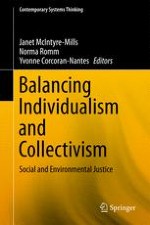2018 | OriginalPaper | Chapter
12. Customary Land Tenure and Ecological Sustainability in Acholi Land, Northern Uganda
Author : Francis A. Akena
Published in: Balancing Individualism and Collectivism
Publisher: Springer International Publishing
Activate our intelligent search to find suitable subject content or patents.
Select sections of text to find matching patents with Artificial Intelligence. powered by
Select sections of text to find additional relevant content using AI-assisted search. powered by
